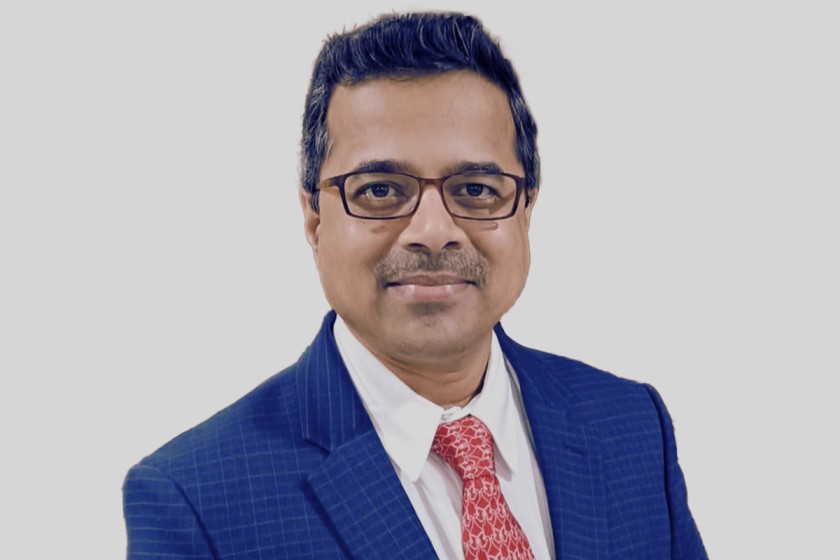- October 1, 2024
How Biocon CFO is harmonising market expansion with financial prudence in a changing economy

Covering everything from supply chain resilience and economic volatility to global expansion and disruptive technologies, Upadhye reveals the key strategies that are driving his company towards sustained success in a changing economy.
Q: Are there any supply chain challenges that your organization is battling?
Kedar: Not as many. We have not faced those challenges in biosimilars, unlike the small molecule industry which has a higher dependence on China and has gone through some of those challenges. Cost of transport and availability keep shifting in a narrow band, but it has reverted to the mean, so we have been able to handle it.
Q: How favourable are you finding the external environment? Are there challenges that you are still trying to navigate with the uncertainties in the global economic environment?
Kedar: The global macroeconomy, in terms of currency and interest rates, has been volatile. The rupee depreciated significantly but has stabilized since then. Interest rates have been very volatile and that is a factor we are tracking closely, as it impacts our financing costs due to a large acquisition we made. However, the pharmaceutical industry is recession-proof to some extent, so we are likely to benefit from lower rate environment.
Q: Could you tell us a little bit more about where you’ve expanded to and what your future plans are?
Kedar: We have manufacturing focal points in Bangalore and Malaysia, in addition to an extended Global supply ecosystem. With a recent acquisition, we now have a globally integrated commercial enterprise. We sell throughout emerging markets and advanced markets, including the US, Canada, and Europe. The expansion has been multifold, with an expanded market and customer franchise. This has allowed us to build the business as a globally integrated company, which is unique and gives us the strength to leverage our portfolio.
Q: What are some of the key financial metrics that you use for your internal strategic decisions?
Kedar: We track core EBITDA, EBITDA, and cash flow from operations. Core EBITDA reflects the health of operations before the R&D Investments and other non-recurring items. Cash flow is a net retained operating cash flow metric. Cash generation from operations apart from strong liquidity are focus areas for us. We also assess days of holding inventory, days sales outstanding, and days payables outstanding.
Q: What are some of the emerging technologies that you are looking for in business and finance?
Kedar: The pharma business is highly regulated, so we focus on compliance, digitizing the supply chain for agility, and using data science tools to improve touch time, response time, and cut down manual processes. We deploy these tools in our global operations and measure stakeholder delight apart from return on investment in Commercial and Operating outcomes. In finance, the focus is on simpler reporting, smart consolidation rules in ERP, and dashboards for key parameters.
Q: How are you looking at the evolving generative AI landscape?
Kedar: It’s very interesting and promising. We need to use it to our advantage in areas like manual processing, robotics, and drafting complex agreements.
Q: How do you engage with policymakers in key markets on pricing models to balance affordability and incentivize innovation?
Kedar: Affordability is the DNA of the biosimilars industry. We play a significant part in making global medicines affordable. Engagement with authorities is continuous, and we work within frameworks of pricing, quality, competition, laws, marketing regulations and similar applicable regulations across countries. The kind of savings we have delivered globally to the healthcare system is very significant, and we will continue to work towards affordability.
Q: What are your priorities for this financial year?
Kedar: We are closely watching the trend on interest rates and its impact on financing costs. We are also observing geopolitical events, evolving trends on therapy shifts, public health and their impact on medicine consumption to respond to demand and capacity needs. Internally, we are focusing on transforming the business globally, meeting increasing customer demand, and making the business model more resilient.
Q: What does your finance team look like, and how do you approach talent management?
Kedar: Our team size is a little less than a hundred, spread across different locations. We follow a business finance and centre of excellence model, with the centre of excellence based in Bangalore. We focus on providing diverse exposure, high-impact assignments, and creating future leaders through this function. We also have policies and examples of leaders moving out of finance and returning. Talent is key, and we are working on rotations and creating assignments for new leadership to emerge and provide diversified career experiences.

Shivani Srivastava
Shivani is a Senior Editor at CFO Collective - An IMA Company. Her passion lies in engaging with senior finance leaders to delve into topics such as AI, technology, corporate finance, and sustainability, extracting invaluable insights that she transforms into enriching material for the finance community.
